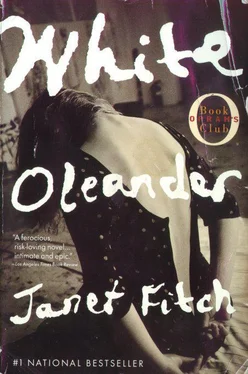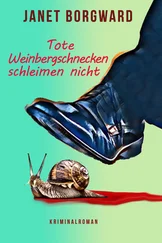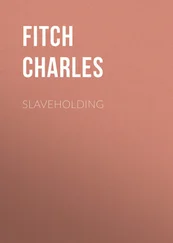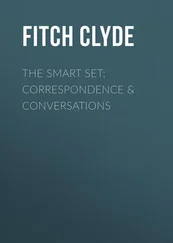Janet Fitch - White Oleander
Здесь есть возможность читать онлайн «Janet Fitch - White Oleander» весь текст электронной книги совершенно бесплатно (целиком полную версию без сокращений). В некоторых случаях можно слушать аудио, скачать через торрент в формате fb2 и присутствует краткое содержание. Жанр: Современная проза, на английском языке. Описание произведения, (предисловие) а так же отзывы посетителей доступны на портале библиотеки ЛибКат.
- Название:White Oleander
- Автор:
- Жанр:
- Год:неизвестен
- ISBN:нет данных
- Рейтинг книги:3 / 5. Голосов: 1
-
Избранное:Добавить в избранное
- Отзывы:
-
Ваша оценка:
- 60
- 1
- 2
- 3
- 4
- 5
White Oleander: краткое содержание, описание и аннотация
Предлагаем к чтению аннотацию, описание, краткое содержание или предисловие (зависит от того, что написал сам автор книги «White Oleander»). Если вы не нашли необходимую информацию о книге — напишите в комментариях, мы постараемся отыскать её.
White Oleander — читать онлайн бесплатно полную книгу (весь текст) целиком
Ниже представлен текст книги, разбитый по страницам. Система сохранения места последней прочитанной страницы, позволяет с удобством читать онлайн бесплатно книгу «White Oleander», без необходимости каждый раз заново искать на чём Вы остановились. Поставьте закладку, и сможете в любой момент перейти на страницу, на которой закончили чтение.
Интервал:
Закладка:
Janet Finch
White Oleander
1
THE SANTA ANAS blew in hot from the desert, shriveling the last of the spring grass into whiskers of pale straw. Only the oleanders thrived, their delicate poisonous blooms, their dagger green leaves. We could not sleep in the hot dry nights, my mother and I. I woke up at midnight to find her bed empty. I climbed to the roof and easily spotted her blond hair like a white flame in the light of the three-quarter moon.
“Oleander time,” she said. “Lovers who kill each other now will blame it on the wind.” She held up her large hand and spread the fingers, let the desert dryness lick through. My mother was not herself in the time of the Santa Anas. I was twelve years old and I was afraid for her. I wished things were back the way they had been, that Barry was still here, that the wind would stop blowing.
“You should get some sleep,” I offered.
“I never sleep,” she said.
I sat next to her, and we stared out at the city that hummed and glittered like a computer chip deep in some unknowable machine, holding its secret like a poker hand. The edge of her white kimono flapped open in the wind and I could see her breast, low and full. Her beauty was like the edge of a very sharp knife.
I rested my head on her leg. She smelled like violets. “We are the wands,” she said. “We strive for beauty and balance, the sensual over the sentimental.”
“The wands,” I repeated. I wanted her to know I was listening. Our tarot suit, the wands. She used to lay out the cards for me, explain the suits: wands and coins, cups and swords, but she had stopped reading them. She didn’t want to know the future anymore.
“We received our coloring from Norsemen,” she said. “Hairy savages who hacked their gods to pieces and hung the flesh from trees. We are the ones who sacked Rome. Fear only feeble old age and death in bed. Don’t forget who you are.”
“I promise,” I said.
Down below us in the streets of Hollywood, sirens whined and sawed along my nerves. In the Santa Anas, eucalyptus trees burst into flames like giant candles, and oilfat chaparral hillsides went up in a rush, flushing starved coyotes and deer down onto Franklin Avenue.
She lifted her face to the singed moon, bathing in its glowering beams. “Raven’s-eye moon.”
“Baby-face moon,” I countered, my head on her knee.
She softly stroked my hair. “It’s a traitor’s moon.”
IN THE SPRING this wound had been unimaginable, this madness, but it had lain before us, undetectable as a land mine. We didn’t even know the name Barry Kolker then.
Barry. When he appeared, he was so small. Smaller than a comma, insignificant as a cough. Someone she met at a poetry reading. It was at a wine garden in Venice. As always when she read, my mother wore white, and her hair was the color of new snow against her lightly tanned skin. She stood in the shade of a massive fig tree, its leaves like hands. I sat at the table behind stacks of books I was supposed to sell after the reading, slim books published by the Blue Shoe Press of Austin, Texas. I drew the hands of the tree and the way bees swarmed over the fallen figs, eating the sun-fermented fruit and getting drunk, trying to fly and falling back down. Her voice made me drunk—deep and sun-warmed, a hint of a foreign accent, Swedish singsong a generation removed. If you’d ever heard her, you knew the power of that hypnotic voice.
After the reading, people crowded around, gave me money to put in the cigar box, my mother signed a few books. “Ah, the writer’s life,” she said ironically, as they handed me the crumpled fives and ones. But she loved these readings, the way she loved evenings with her writer friends, trashing famous poets over a drink and a joint, and hated them, the way she hated the lousy job she had at Cinema Scene magazine, where she pasted up the copy of other writers, who, at fifty cents a word, bled shameless clichés, stock nouns and slack verbs, while my mother could agonize for hours over whether to write an or the .
As she signed her books, she wore her customary half-smile, more internal than outward, having a private joke while she thanked everybody for coming. I knew she was waiting for a certain man. I’d already seen him, a shy blond in a tank top with a bead-and-yarn necklace, who stood in the back, watching her, helpless, intoxicated. After twelve years as Ingrid’s daughter, I could spot them in my sleep.
A chunky man, his dark hair pulled back in a curly ponytail, pushed in, offered his book to be signed. “Barry Kolker. Love your work.” She signed his book, handed it back to him, not even looking into his face. “What are you doing after the reading?” he asked.
“I have a date,” she said, reaching for the next book to sign.
“After that,” he said, and I liked his self-confidence, though he wasn’t her type, being chubby, dark, and dressed in a suit from the Salvation Army. She wanted the shy blond, of course, way younger than her, who wanted to be a poet too. He was the one who came home with us.
I lay on my mattress on the screen porch and waited for him to leave, watching the blue of the evening turn velvet, indigo lingering like an unspoken hope, while my mother and the blond man murmured on the other side of the screens. Incense perfumed the air, a special kind she bought in Little Tokyo, without any sweetness, expensive; it smelled of wood and green tea. A handful of stars appeared in the sky, but in L.A. none of the constellations were the right ones, so I connected them up in new arrangements: the Spider, the Wave, the Guitar.
When he left, I came out into the big room. She was sitting cross-legged on her bed in her white kimono, writing in a notebook with an ink pen she dipped in a bottle. “Never let a man stay the night,” she told me. “Dawn has a way of casting a pall on any night magic.”
The night magic sounded lovely. Someday I would have lovers and write a poem after. I gazed at the white oleanders she had arranged on the coffee table that morning, three clusters of blossoms representing heaven, man, and earth, and thought about the music of her lovers’ voices in the dark, their soft laughter, the smell of the incense. I touched the flowers. Heaven. Man. I felt on the verge of something, a mystery that surrounded me like gauze, something I was beginning to unwind.
ALL THAT SUMMER, I went with her to the magazine. She never thought far enough ahead to put me in a Y program, and I never mentioned the possibility of summer school. I enjoyed school itself, but it was torture for me to try to fit in as a girl among other girls. Girls my own age were a different species entirely, their concerns as foreign as the Dogons of Mali. Seventh grade had been particularly painful, and I waited for the moment I could be with my mother again. The art room of Cinema Scene, with its ink pens and a carousel of colored pencils, table-sized paper, overlays and benday dots, border tape, and discarded headlines and photographs that I could wax and collage, was my paradise. I liked the way the adults talked around me; they forgot I was there and said the most amazing things. Today, the writers and the art director, Marlene, gossiped about the affair between the publisher and the editor of the magazine. “A bizarre bit of Santa Ana madness,” my mother commented from the pasteup table. “That beaky anorexic and the toupeed Chihuahua. It’s beyond grotesque. Their children wouldn’t know whether to peck or bark.”
They laughed. My mother was the one who would say out loud what the others were thinking.
I sat at the empty drafting table next to my mother’s, drawing the way the Venetian blinds sliced the light like cheese. I waited to hear what my mother would say next, but she put her headphones back on, like a period at the end of a sentence. This was how she pasted up, listening to exotic music over headphones and pretending she was far away in some scented kingdom of fire and shadows, instead of sitting at a drafting table at a movie magazine pasting up actor interviews for eight dollars an hour. She concentrated on the motion of her steel X-acto knife, slicing through the galleys. She pulled up long strips that stuck to the knife. “It’s their skins I’m peeling,” she said. “The skins of the insipid scribblers, which I graft to the page, creating monsters of meaninglessness.”
Читать дальшеИнтервал:
Закладка:
Похожие книги на «White Oleander»
Представляем Вашему вниманию похожие книги на «White Oleander» списком для выбора. Мы отобрали схожую по названию и смыслу литературу в надежде предоставить читателям больше вариантов отыскать новые, интересные, ещё непрочитанные произведения.
Обсуждение, отзывы о книге «White Oleander» и просто собственные мнения читателей. Оставьте ваши комментарии, напишите, что Вы думаете о произведении, его смысле или главных героях. Укажите что конкретно понравилось, а что нет, и почему Вы так считаете.












